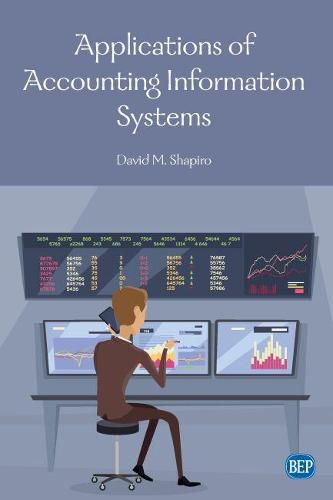Readings Newsletter
Become a Readings Member to make your shopping experience even easier.
Sign in or sign up for free!
You’re not far away from qualifying for FREE standard shipping within Australia
You’ve qualified for FREE standard shipping within Australia
The cart is loading…






This title is printed to order. This book may have been self-published. If so, we cannot guarantee the quality of the content. In the main most books will have gone through the editing process however some may not. We therefore suggest that you be aware of this before ordering this book. If in doubt check either the author or publisher’s details as we are unable to accept any returns unless they are faulty. Please contact us if you have any questions.
The revolutionary effects of using accounting information systems by displacing manual information systems in the private and public sectors cannot be overstated. The benefits of this substitution of set of processes include increased mathematical accuracy, predefined fields and coding tasks, and de-emphasis of manual clerical labor in favor of labor adept in data processing.
Reporting can be significantly automated, facilitating managerial power and control at a distance and the proliferation of global enterprises. The potential detriments are rarely accurately, completely, and timely addressed as information system vendors, management consultants, and corporate procurement teams race toward the popularly conceived state of the art. Systems are ballyhooed as continually improving in processing speed, functionality, and capacity.
Users of these automated systems may not consider big picture effects, and they may not intelligently consider the conduct risks to their own enterprises by concentrating such global reach and influence at high levels of senior management without dedicating adequate resources to verifying the accuracy, completeness, and timeliness of the information systems. This book considers these risks.
$9.00 standard shipping within Australia
FREE standard shipping within Australia for orders over $100.00
Express & International shipping calculated at checkout
This title is printed to order. This book may have been self-published. If so, we cannot guarantee the quality of the content. In the main most books will have gone through the editing process however some may not. We therefore suggest that you be aware of this before ordering this book. If in doubt check either the author or publisher’s details as we are unable to accept any returns unless they are faulty. Please contact us if you have any questions.
The revolutionary effects of using accounting information systems by displacing manual information systems in the private and public sectors cannot be overstated. The benefits of this substitution of set of processes include increased mathematical accuracy, predefined fields and coding tasks, and de-emphasis of manual clerical labor in favor of labor adept in data processing.
Reporting can be significantly automated, facilitating managerial power and control at a distance and the proliferation of global enterprises. The potential detriments are rarely accurately, completely, and timely addressed as information system vendors, management consultants, and corporate procurement teams race toward the popularly conceived state of the art. Systems are ballyhooed as continually improving in processing speed, functionality, and capacity.
Users of these automated systems may not consider big picture effects, and they may not intelligently consider the conduct risks to their own enterprises by concentrating such global reach and influence at high levels of senior management without dedicating adequate resources to verifying the accuracy, completeness, and timeliness of the information systems. This book considers these risks.